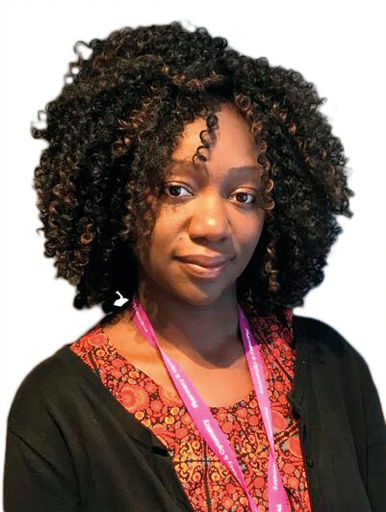Going solo, getting stressed
In Practice
Follow this topic
Bookmark
Record learning outcomes
A new study has highlighted the difficulties pharmacists face when they first qualify. PM reviews the paper and talks to the author about possible solutions
All pharmacists remember the feeling they had the first time they were left in charge of a pharmacy: worried about letting a dispensing error or incorrect OTC product go out to a patient, stressed about trying to keep on top of everything, anxious about coming across something unfamiliar and looking stupid by asking questions about the most basic of operations€¦ and exhausted and relieved when it was over. But that's just the way it is, so everyone has to go through it, right?
Arguably, maintaining the status quo isn't always the best €“ or right €“ course of action. In a paper published recently in the journal, Health and Social Care in the Community, a team from Manchester University explored not only the experiences of pharmacists as they qualify, but also questioned the handling of this shift from student to professional.
The article, 'Community pharmacist at transition to independent practice: isolated, unsupported and stressed', is an accurate summation of the research findings €“ and comes as no surprise to anyone who has been on the same journey €“ but more interesting is the authors' probing of the impact this can have, not just on the pharmacists themselves, but also the rest of the team, the workplace and patients.
A term that emerges in the paper is €isostrain€. Lead author Esnath Magola describes this as €the pressure caused by working in a role where there are a lot of responsibilities but a lack of support€. She says that many of the individuals she interviewed said they felt they needed to make decisions based on standard operating procedures and not what was necessarily in the best interests of the patient €“ a prime example being refusing an emergency supply because a GP surgery was open.
'Upside down'
This behaviour of focusing on operations rather than professionalism stemmed from feeling too busy and also a fear of €looking bad€ in the eyes of support staff, employers or even the GPhC. Dr Magola attributes this to the €upside down hierarchy€ that frequently exists in community pharmacy, whereby the newest and often youngest member of staff is often the most 'senior'.
€Pharmacists seem to think that because they went through this difficult transition when they qualified, that is just the way it should be for those coming through after them€ Dr Magola comments. €It is different in nursing and medicine, where there is a culture that more inexperienced staff should be mentored and supported €“ because nurses and doctors received this in their early careers, they expect to give it back.
€That may be due to the fact that these professions have continuous curriculums, with the same bodies seeing professionals through their undergraduate and postgraduate years. In pharmacy, it is more fragmented, with schools of pharmacy really having nothing to do with students after they graduate, and there being no clear handover in terms of support structures after qualifying.€

Making a difference
Dr Magola outlines some measures that could make a difference:
- Employers to not put newly qualified pharmacists in highly challenging environments; for example pharmacies that have not had a manager for a long time and therefore have poorly embedded processes; branches where there is a shortage of qualified and/or experienced support staff; locations where the work is less mainstream (e.g. high levels of supervised consumption or dispensing into monitored dosage systems)
- Employers and support staff to lower their expectations that a newly qualified pharmacist will slot in seamlessly, particularly given that they are likely to have taken over from someone with much more experience and familiarity with systems
- More understanding from support staff that newly qualified pharmacists need a little more time to complete tasks and a willingness to share their experience and knowledge of operations
- Fostering a culture in which it is regarded as acceptable to ask questions, rather than encouraging a €fake it until you make it€ approach
- Newly qualified pharmacists €“ maybe with the support of employers and professional bodies €“ to develop social support structures, ideally facilitated by a more experienced person in the same sector; for instance, a WhatsApp or closed Facebook group, with the aim of helping people find answers to their queries through discussion. A paper looking at this in practice is currently being written.
Need for change
Dr Magola emphasises the need for change to the current situation, highlighting how the increasingly clinical role of community pharmacists means the levels of pressure newly qualified pharmacists are exposed to are only going to grow.
However, she adds, advances such as the introduction of peer discussion as part of the GPhC's revalidation requirements not only recognise the dangers of professional isolation but are attempting to address it.

